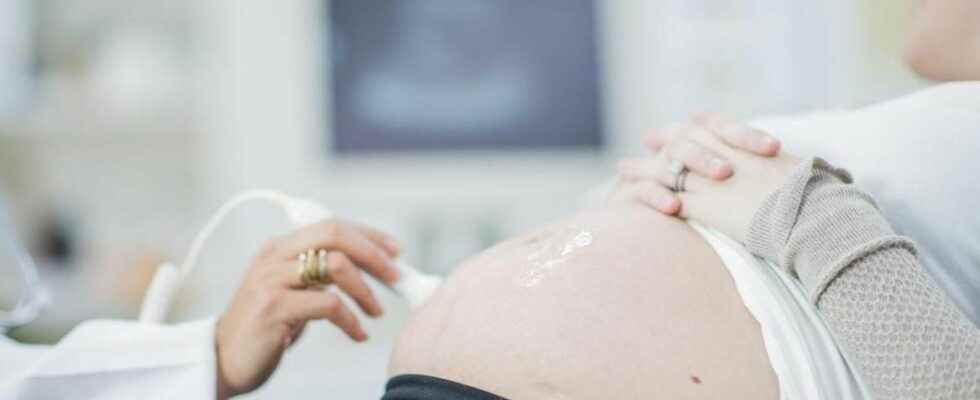Published on
Updated
Reading 1 min.
Marie Lanen
Head of parenting section (baby, pregnancy, family)
Suffering from a rare malformation, the didelphic uterus, a 30-year-old American woman gave birth twice in the same year when she thought she had no children. Account of two miraculous births.
Caroline Wortman was 18 when she consulted a gynecologist for the first time. The latter, after carrying out routine examinations, detected a rare malformation in the young woman: a didelphic uterus. The latter comes with two uteri and two vaginas. While this anomaly can lead to infertility, the young woman had the great surprise of welcoming a little girl in January 2021, then a second child in December of the same year. These two babies were each in a different womb.
Didelphic uterus: a rare malformation
The didelphe uterus (or bicornuate uterus) is a malformation linked to a defect in the development of the fetus. Indeed, the female genital tract develops between the 6th and 9th week of pregnancy. At this stage, they are in the form of tubes, the Müller ducts, which must merge to form the cervix, the vagina and the uterus. It is this fusion which did not take place and which causes this anomaly: the uterus then retains its double form (two vaginas and two uteri).
Double uterus: two pregnancies in one year
Caroline Wortman quickly realizes that this malformation can lead to infertility and/or complications in carrying a pregnancy to term. However, it does not take long to become pregnant with her first child in March 2020 after her marriage. Just six months after giving birth (in January 2021) to little Josie who was located in her right uterus, she discovers that she is 10 weeks pregnant, a baby has nestled in her left uterus. She gives birth at 33 weeks (SA) to Brooks, a 2.5 kg little boy, on December 26, 2021. A real miracle for the doctors and for Caroline, lucky to have been able to carry out two pregnancies without serious complications.
A story she told on social networks and to journalists from the Daily Mail in order to give hope to women having difficulty getting pregnant.
